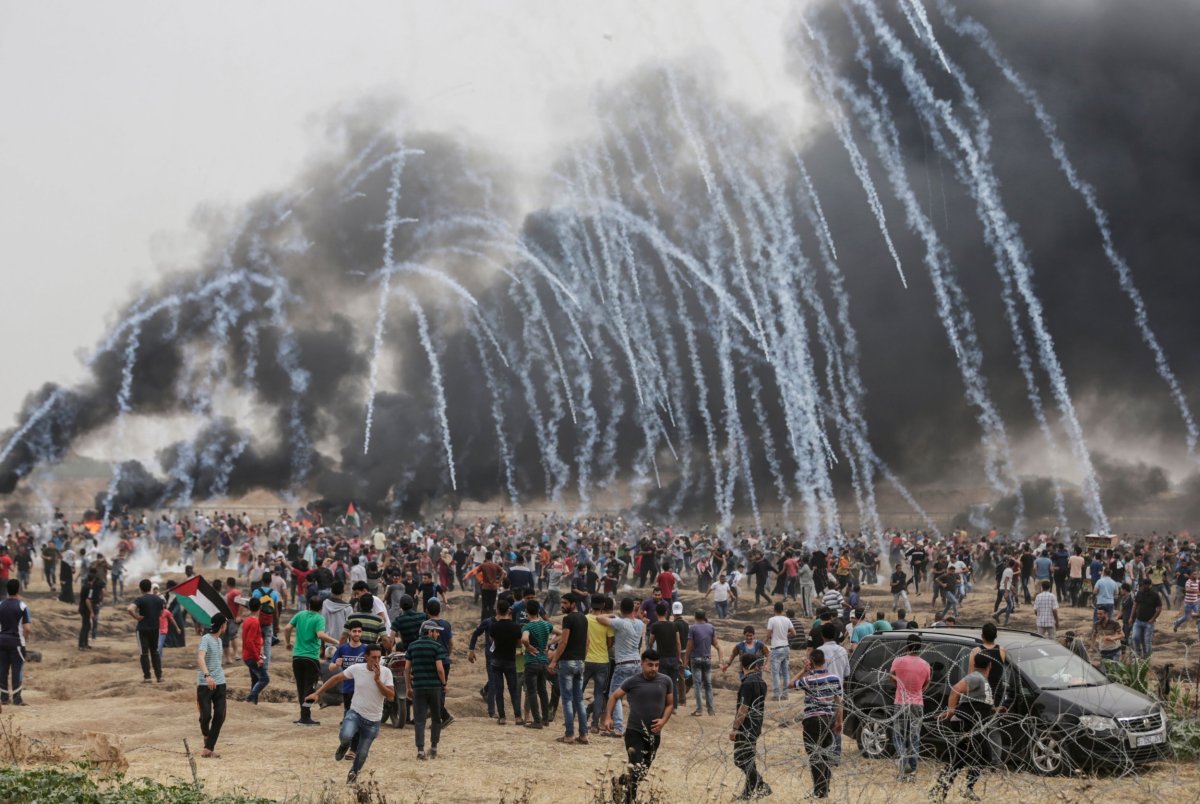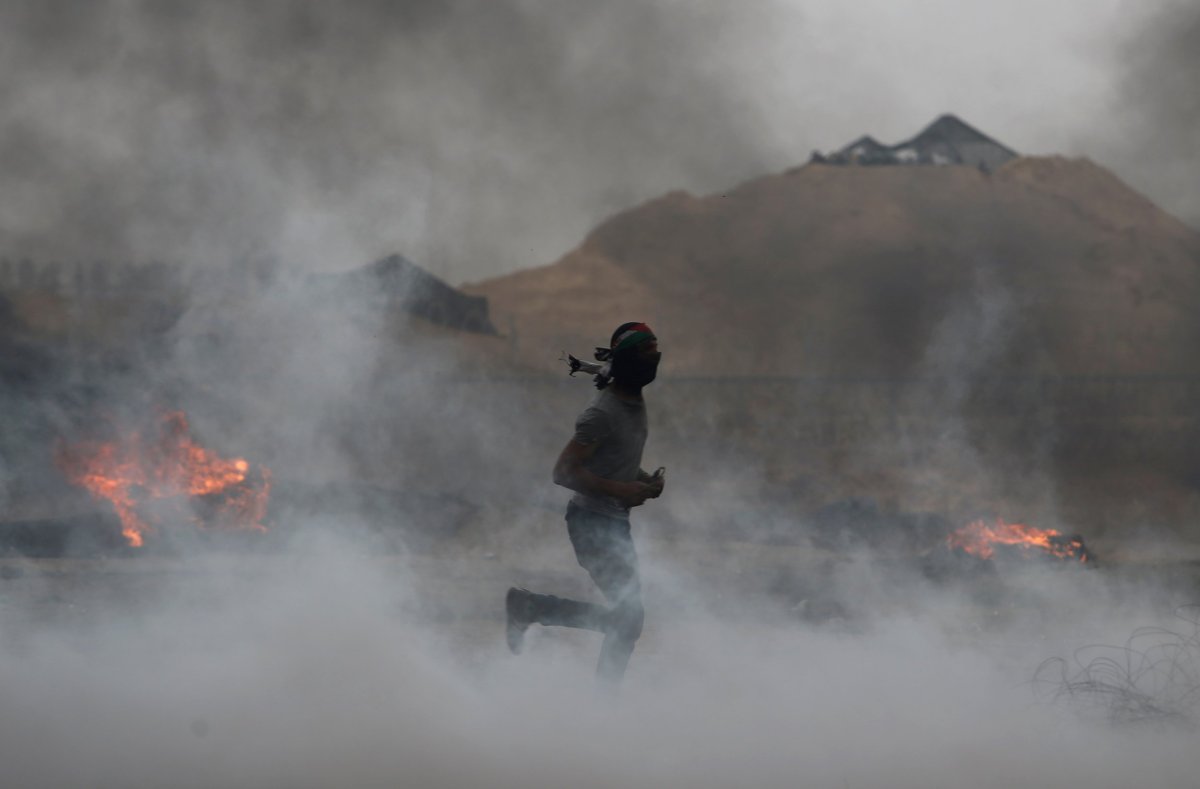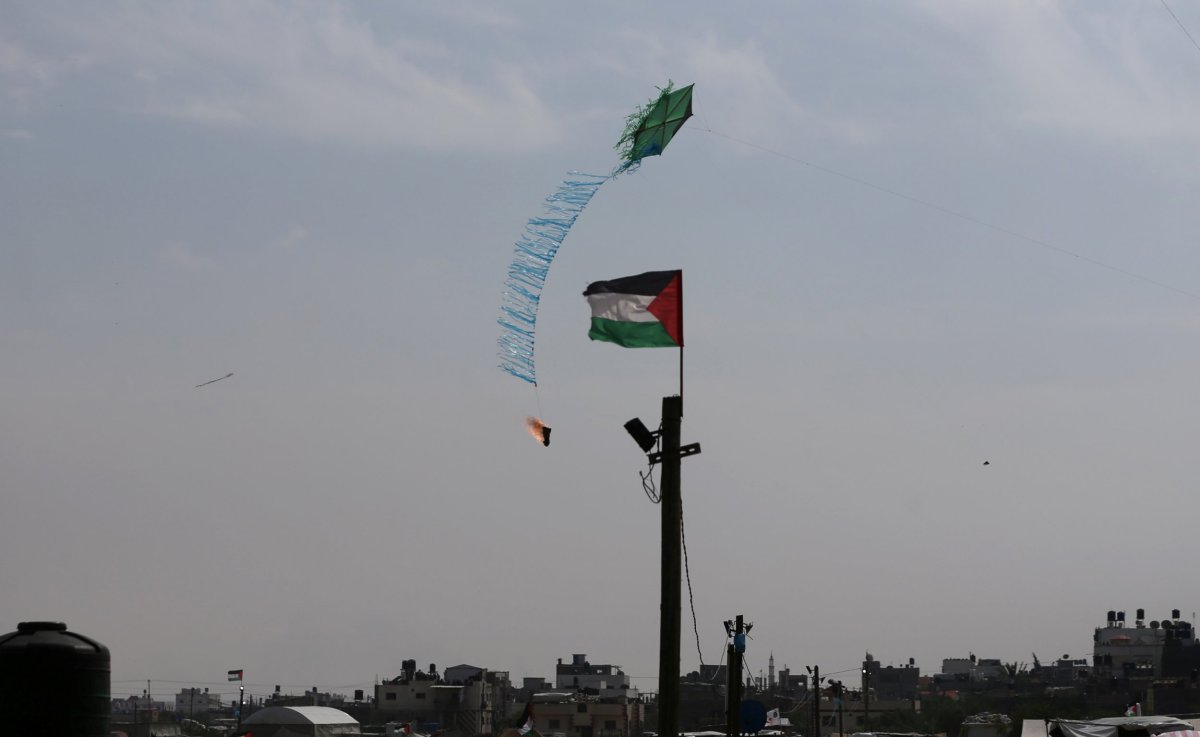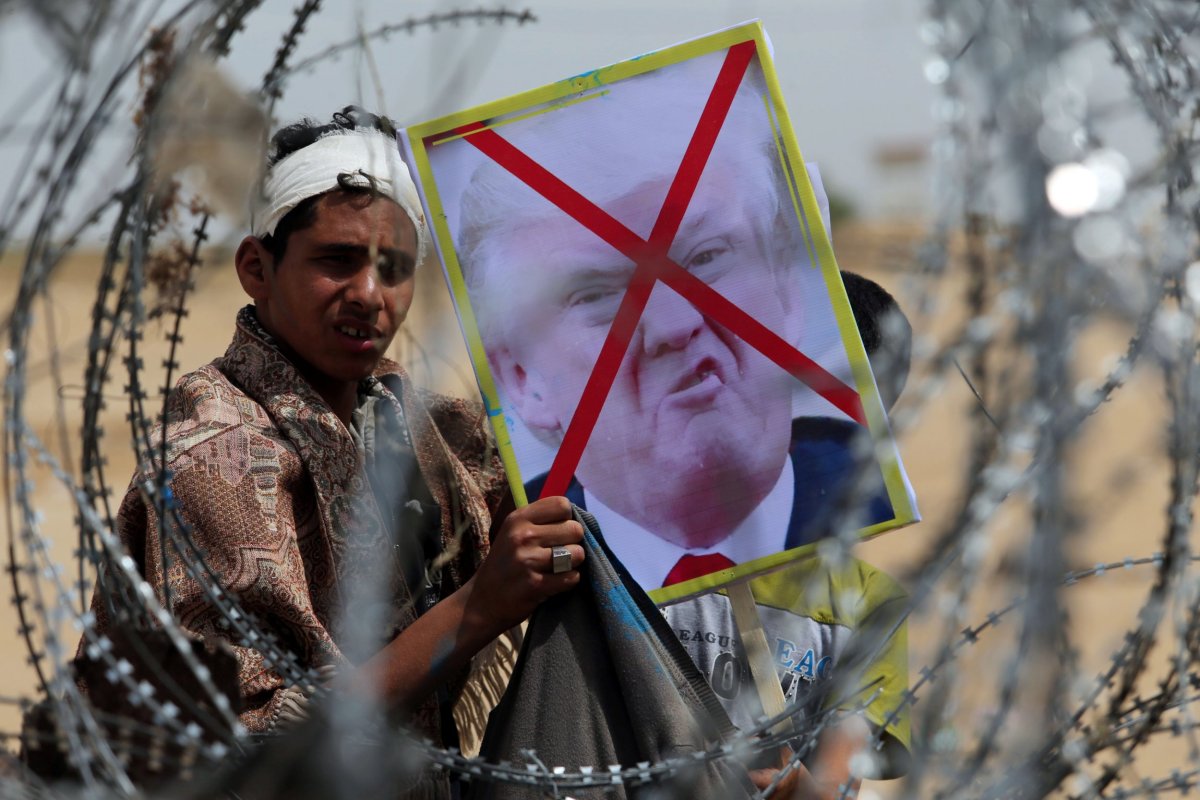For the past six weeks, the border between the Gaza Strip and Israel has been the scene of anger, violence and death. Palestinians are taking part in demonstrations calling for the right for Palestinian refugees to return to the land they left or were forced to leave after the creation of Israel in 1948.
Most protesters gathered to demonstrate peacefully, but others used burning tires, kite bombs, explosives and stones to attack the border fence. Israel Defense Forces (IDF) soldiers have responded with tear gas, rubber-coated steel bullets and live ammunition. So far, 47 protesters have been killed and nearly 7,000 wounded.
The demonstrations will peak on May 15 as Palestinians mark the Nakba, or "catastrophe"—the anniversary of the exodus that saw around 750,000 flee what is now Israel. The diaspora has spread far and wide, and around half of all Palestinians now live outside Israel and the Palestinian territories.
Fridays mark the high point of the protests each week when crowds swell along the fence—as do casualties. This Friday will be the last before the Nakba, and Israeli authorities are preparing to face the largest crowd yet. Hamas's leader in Gaza, Yahya Sinwar, said on Wednesday, "We can't stop these protests," which he described as being "like a tiger running in all directions."

Israel maintains that only those posing a risk to the border fence and its troops were targeted, and argues that Hamas, the Islamist militant group controlling the Gaza Strip, is using the protests as a cover for planning and executing attacks. Human rights groups have accused Israel of causing unnecessary bloodshed, with one report alleging the use of "lethal force outside of life-threatening situations in violation of international norms."
With the controversial U.S. embassy set to open in Jerusalem on May 14, the five days from Friday's protests to Tuesday's Nakba anniversary will be tense, and quite possibly bloody.
Right of return
The right of return, which would apply to all the Palestinians and their descendents who left what is now Israel, is central to the demonstrations. Given that around half of Gaza's 2 million inhabitants are refugees, the right resonates with many. Israel, for its part, has consistently ruled out offering refugees the right of return, fearing a mass movement of Palestinians across the border could make Israeli Jews a minority in the country.
According to Yossi Kuperwasser, who served as an IDF intelligence officer and is the former director general of the Israel Ministry of Strategic Affairs, there is no room for compromise on this issue. "What they want is us out; they want to bring an end to Zionism," he told Newsweek. "You cannot compromise on the way you are going to be killed."
Kuperwasser, who now works for the Jerusalem Center for Public Affairs, said the only way to move forward was to return to the negotiating table, and for Palestinians to drop their demand. "There is no right of return," he said.
The importance of the right to return is reflected in the fact that 28 of the 40 people killed so far were refugees, a Palestinian official who asked not to be named told Newsweek. "In order to achieve a just and lasting peace between Israel and Palestine, there has to be a just and fair solution to the refugee issue." He said that any agreement must be based on the 1948 United Nations Resolution 194, which resolved that refugees wishing to return to their homes be allowed to do so.

Hugh Lovatt, an analyst at the European Council on Foreign Relations, noted a wide range of demands and grievances represented among the demonstrators. An important element of discontent is the grim humanitarian situation in the Gaza Strip. Protesters are taking the opportunity to vent their anger at electricity cuts, fuel shortages, the sorry state of Gaza's infrastructure and other grievances. Israel and Egypt imposed a strict blockade on Gaza in 2006, preventing spare parts and even construction materials from entering the enclave, claiming they wouold inevitably be diverted to military use.
The Palestinian official said the movement is "led by civil society and supported by the vast majority of the Palestinian people, including its political parties." He continued, "The most important demand remains the full Israeli withdrawal from the territory occupied in 1967, including East Jerusalem," stressing the movement was "about the systematic denial of Palestinian rights." The only way to progress, he said, is for Israel to end its policy of "managing the status quo rather than moving towards conflict resolution."
While the protests resonate with Palestinians, outside support has been mostly rhetorical thus far. Palestinian Authority (PA) President Mahmoud Abbas praised "brothers in Hamas" for their involvement in the largely peaceful demonstrations, but the lack of protests in the West Bank and elsewhere is notable. Tiredness and apathy are two explanations for it, but it could also reflect a concerted effort by the PA and Israel to suppress West Bank action.
Abbas's government has exacerbated already difficult conditions for Gazans, cutting salaries for civil servants in the Strip; a gap exists between PA rhetoric and practice. "But let's see what happens for the inauguration of the U.S. embassy," Lovatt said. "Are Palestinians in the West Bank keeping their powder dry?"

An approaching catastrophe
With the end of the protests, the approach of Nakba and the imminent opening of the American embassy in Jerusalem, escalation and further bloodshed are expected. The protests may spread to the West Bank next week, but Gaza's border fence will remain in focus.
There are fears that groups of demonstrators may attempt to rush the fence and break into Israel. On Thursday, Sinwar asked, "What's the problem with hundreds of thousands breaking through a fence that is not a border?" But such an action would no doubt lead to more deaths for little gain.
"Israel will have to take whatever measures are necessary in order to make sure nobody crosses the border," Kuperwasser said, adding, "We have no intention to have any casualties; we are trying to minimize the number."
For now, Hamas appears to be supporting the nonviolent approach. An aggressive strategy seems unlikely, Kuperwasser explained, as "they don't think that they are going to gain anything out of it." A more peaceful approach is winning out, as Hamas feels "this can be more effective than a wide-scale battle," according to Kuperwasser.

Israel would not acknowledge a right of return for Palestinians, much less allow them to exercise it, and Gazans cannot, realistically, force their way back into Israel. The response from the international community has thus far been relatively muted, and pressure on Israel limited. For now, Israel appears to believe it can shoulder the diplomatic and reputational costs that come with the use of force.
But for Palestinians, the protests could shape the longer-term strategy. If six weeks of relatively peaceful protest end with high casualties but no concessions, the movement could veer back toward violence.
The dire conditions in the Strip—where the United Nations Relief and Works Agency for Palestine Refugees in the Near East (UNRWA) is facing further funding cuts over the summer—are unlikely to improve in the short term. With no attempt at de-escalation or negotiation, deterioration looks inevitable.
"Absent of an easing of pressure on Gaza, the inevitable trajectory is another war," Lovatt said. It is only a matter of what provides the spark, and when.
Uncommon Knowledge
Newsweek is committed to challenging conventional wisdom and finding connections in the search for common ground.
Newsweek is committed to challenging conventional wisdom and finding connections in the search for common ground.
About the writer
David Brennan is Newsweek's Diplomatic Correspondent covering world politics and conflicts from London with a focus on NATO, the European ... Read more
To read how Newsweek uses AI as a newsroom tool, Click here.








